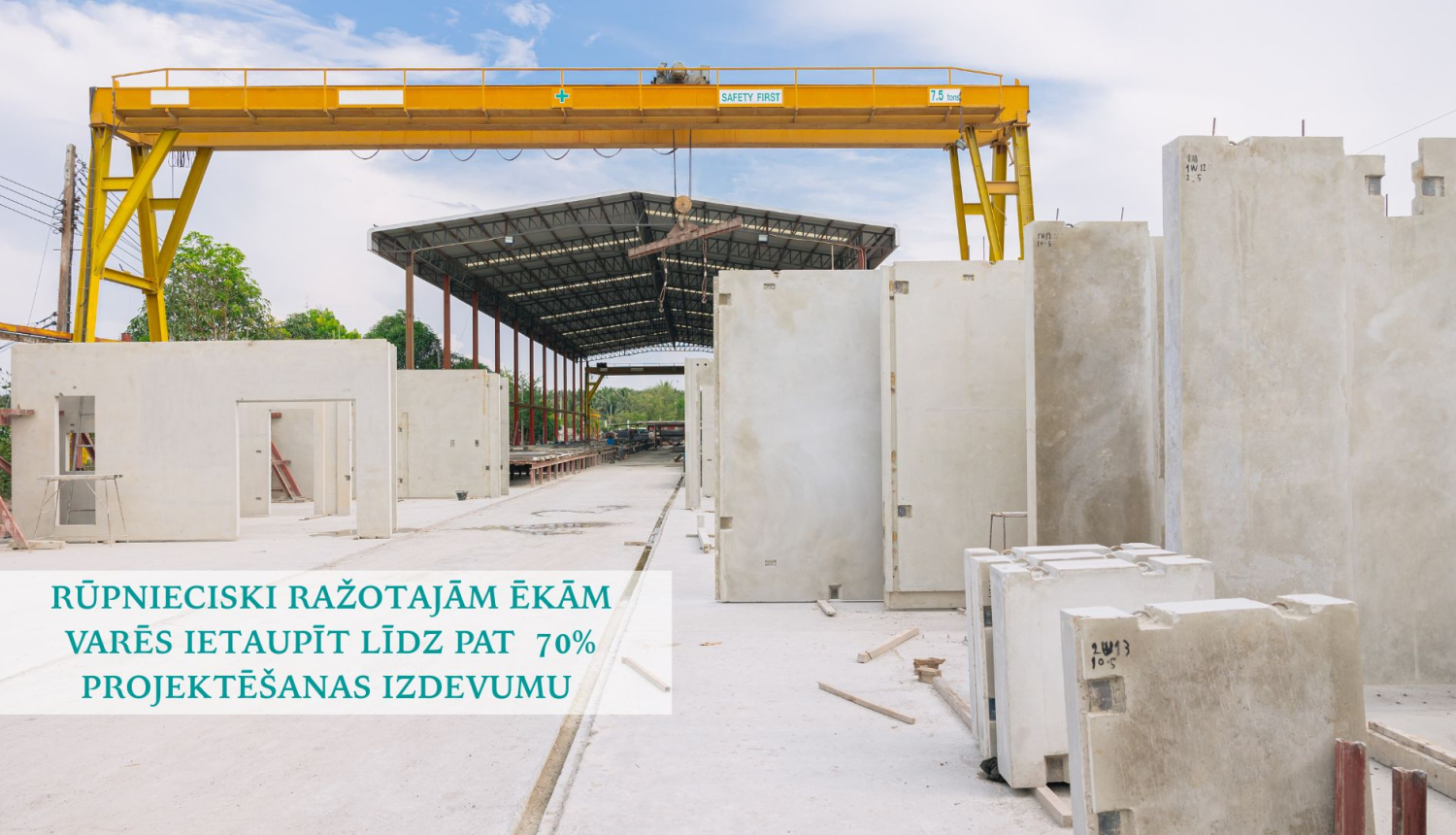To promote the development of industrially manufactured buildings, the government, following the initiative of the Ministry of Economics (MoE), has approved amendments to the regulations set by the Cabinet of Ministers.
The changes were made to the Cabinet of Ministers' Regulation No. 529 "Building Regulations" from September 2, 2014, on the implementation of the EU Cohesion Policy Program 2021-2027, specifically under the measure for "Support for companies' participation in capital markets." With these amendments, support will now be available to businesses involved in the primary production of agricultural, fishing, and aquaculture products.
Previously, these industries were excluded from the support program, but due to the high level of interest from businesses in these sectors and the need for broader growth opportunities, the regulations have been supplemented with the conditions set out in Commission Regulation No. 1408/2013 regarding de minimis support for the agricultural sector and Commission Regulation No. 717/2014 for de minimis support for the fisheries and aquaculture sector.
The support program is designed to facilitate business development by assisting in raising the necessary financing through capital markets, increasing international competitiveness, and promoting investment in viable and innovative companies, allowing them to grow and develop more rapidly. Within the program, support is provided for the listing of shares or debt securities on regulated trading platforms, as well as other activities related to their implementation. The support covers various associated costs, such as consultancy services, costs for preparing and approving issuance documents, and expenses related to in-depth company research and the support of certified consultants in trading platform procedures.
"Until now, fishing and agriculture companies were excluded from this support program, but their active interest and the need for more financing opportunities led to a revision of the regulations. Now, these companies will be able to fully participate in capital markets and utilize new growth instruments. Our goal is to strengthen the competitiveness of companies and promote sustainable growth across all sectors of the economy," said Ilze Lore, Director of the Ministry of Economics' Business Support Department.
Currently, the regulatory framework allows for the use of buildings as finished products, but the regulations are very general, not specifying the technical documentation required for industrially manufactured buildings. As a result, purchasers of such buildings could not ensure that the buildings met the essential requirements of construction standards, such as mechanical strength, stability, fire safety, sound insulation, user safety, environmental accessibility, and energy efficiency.
From now on, manufacturers of industrially produced buildings will be required to develop a technical passport for their products. The technical passport will be prepared before the building is offered on the market, providing buyers with the necessary information regarding its compliance with construction standards. Simultaneously, it will be used in place of the building project when submitting it for approval to the construction authority. Only a general plan and foundation solutions, which depend on the specific location, will need to be prepared.
On April 29th, the government also reviewed an informational report prepared by the Ministry of Economics titled "Unified Building Registration in BIS, the Cadastre, and the Land Registry." It outlines the model for a unified registration process for buildings, the competence of each participating institution, digital solutions, and the functionality of the national information systems under development. This process aims to ensure the implementation of a unified construction and real estate registration process, from the initiation of the construction project to the registration of the building in the Land Registry. This task has been set in the Government's action plan for the Ministry of Economics and the Ministry of Justice, emphasizing that primary data should be acquired via data exchange at the information system level. This will allow a conceptual shift in the building registration process, eliminating the duplication of data collection in the building's inventory phase, with data being registered based on the information obtained during construction.



